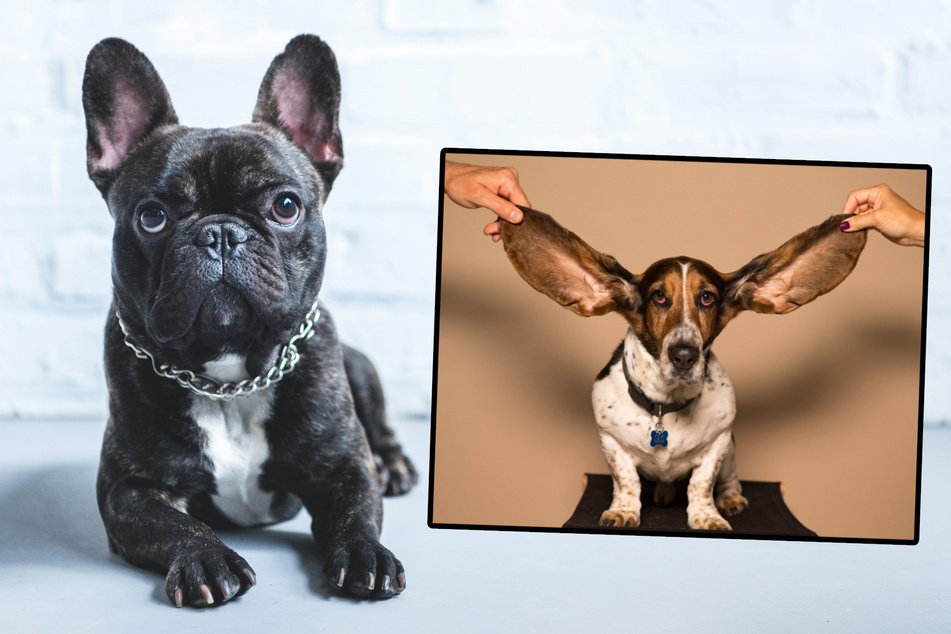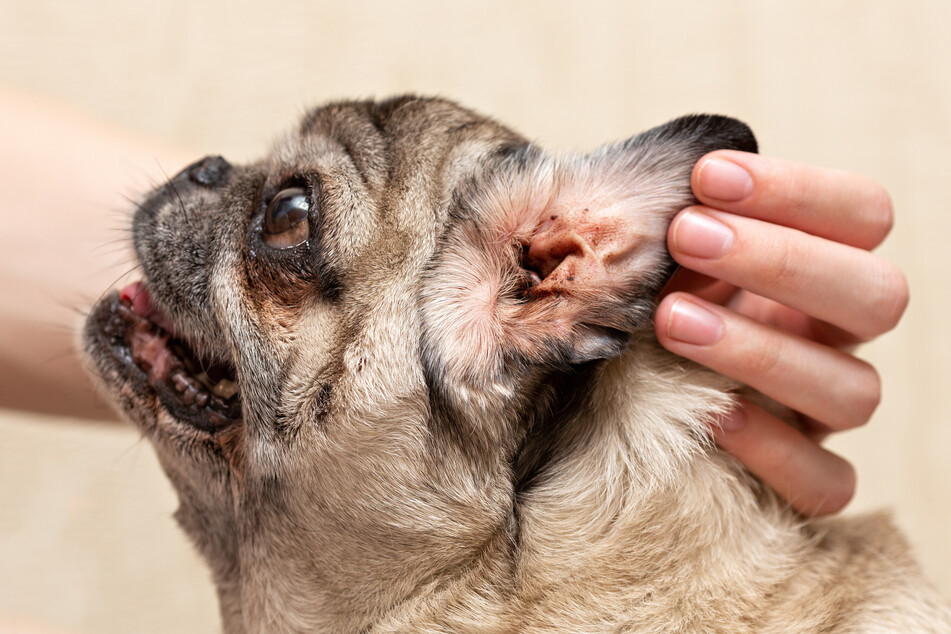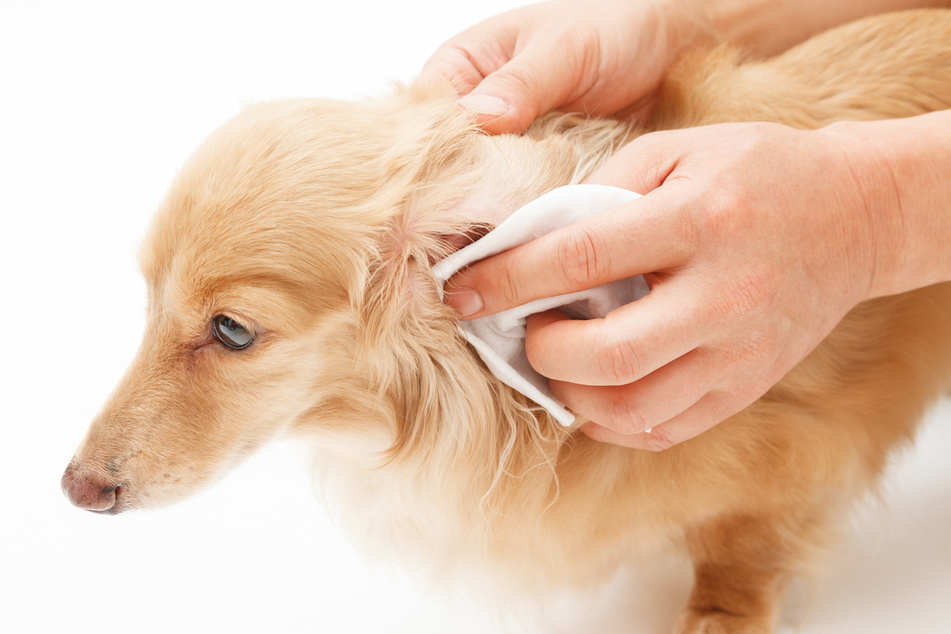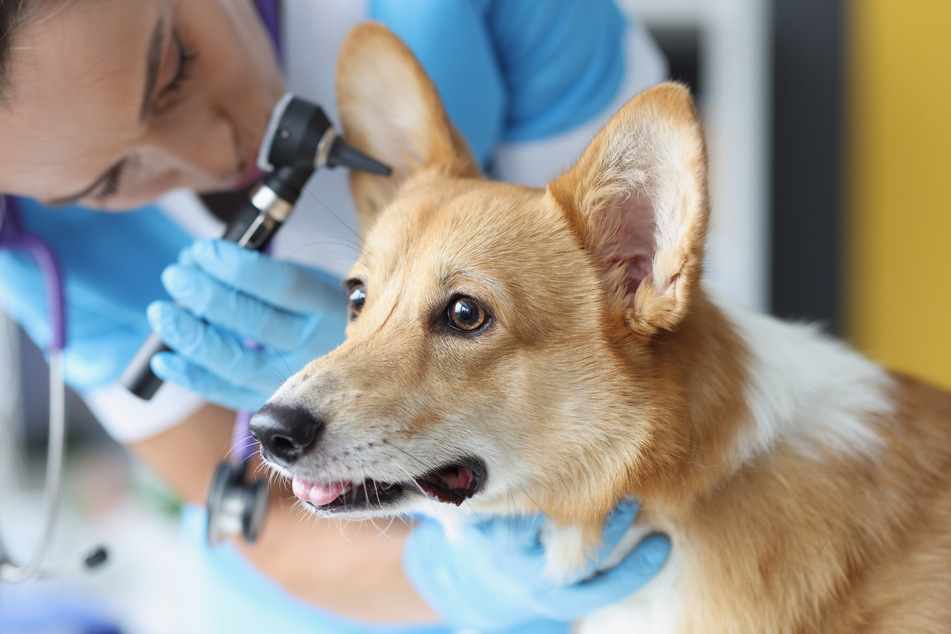How to clean dog ears
Dog ears act as funnels and nets that pick up all kinds of dust and dirt. As a result, they are in constant need of cleaning - and that's why we're here to help.

Have you ever noticed your dog compulsively cleaning its ears, scratching uncomfortably, or looking slightly distressed?
Does your dog seem to have trouble hearing you? Are there blemishes on its ears, does something seem off?
A dog's ears are very sensitive and vulnerable, so it's important to look after them.
In this dog guide, TAG24 will take a look at how to clean dogs' ears. What's the best way to clean a dog's ears, why is it so important, and how often should it be done? Dog ear cleaning is vital, so let's get to it!
How to clean dog ears properly
Regular cleaning of your dog's ears is an important step in the prevention of diseases and inflammation. It guarantees that your dog will not be at a heightened risk of preventable ear-based health issues, and is a habit that all-too-often gets forgotten about in the midst of other dog health and care procedures.
While it is also incredibly important to trim your dog's nails, get it properly groomed, and give it regular baths, it's also important to take steps to make sure that the inside of your dog's ear - an organ that all-too-often acts like a net and catches all manner of things - is kept clean and sanitary.
How to clean your dog's ears:
Step 1: With a cotton and lint-free cloth moistened with lukewarm water, go to town on the inside of your doggo's ears. Be very careful and gentle, dusting off the hairs and slowly wiping it and getting rid of any bigger bits of dirt, any leaves caught inside, or anything more substantial that has gotten itself caught in your dog's ears.
Step 2: Using a liquid ear cleaner that you have purchased from your vet to start the more thorough process of dog ear cleaning. Most of these products require you to drip a few drops into the ear and then gently knead the liquid in using your fingers. Others require you to leave it in for a while, allowing it to dissolve any wax or other dirt before it naturally comes out.
Step 3: Finally, use specific ear cleaner pads that have been bought from your vet or pet shop. Use them carefully, calmly, and gently, wiping away all excess dirt or wax from your doggo's ears. Some pads can even be wrapped around your finger, allowing you to get a little deeper into your dog's ears.
You need to pay attention to regularly removing fur that has grown in the ear canal as well. Do this by simply keeping your eyes open and going in with hair trimming scissors when it gets a bit too bushy!
Please consult your vet before cleaning your dog's ears for the first time. You want to get their advice and recommendations before moving forward. It won't be a hard process, but it's best to always be safe.

How to clean dog ears with vinegar
One common way to clean a dog's ears is to replace the spray or drops with vinegar that has been diluted 1:1 with water. You can apply it the same way, but it's best to use a lint-free cloth to rub it around and help it loosen up the dirt and wax. Be careful, though, not to let the vinegar get into your doggo's eyes or to drip too deep into its ear cavity.
While it's possible to clean dog ears with vinegar, it's really not recommended. When it comes to hound health care, home remedies should be avoided. Go to your vet, get the proper stuff, and don't risk the harm that vinegar could cause if used incorrectly.
How to clean dog ears with hydrogen peroxide
You should never use hydrogen peroxide to clean your dog's ears. While it is a very effective cleaning agent, keep it for use on household items and furniture only, not pets and other living creatures. It can cause severe skin irritation, and is especially dangerous when applied to organs like ears due to the increased sensitivity of such areas.
Repeated use of hydrogen peroxide on a dog's ear could lead to severe damage to the ear itself. The same goes for other parts of your dog's body, such as its tongue, nipples, and nether regions. Just simply don't use it, and instead, stick to commercially available and specially-designed cleaners.
Cut out the home remedies: Many dog owners are tempted to use home remedies, so we'd like to quickly reiterate - always use commercial and specifically-designed products when dealing with any dog health related concerns. Home remedies might be great when dealing with a broken plate or a dirty dishwasher, but not when it comes to animal health care.
Why to clean your dog's ears

Your dog's ears are some of the most sensitive and important places on its body. While humans operate primarily off of sight, doggos rely far more on their sense of hearing and smell to get around and to live a happy life. This makes their ears even more important, and even more in need of protection.
The problem, though, is that dog ears are big and wide, and act as perfect nets for catching dirt, leaves, bugs, and all sorts of other critters and objects. As a result, their ears need to be kept clean to prevent the risk of infection or damage.
Clean dog ears to prevent disease
Have you noticed that your dog is constantly scratching its ears, shaking its head, or trying to put its claws into its ear cavity? This can be a sign of disease or inflammation, something that neglect can directly cause if left unchecked. Hygiene issues and inflammations can cause severe hearing loss and a lot of pain as well, so it's not something you'd want for your pooch.
In addition to issues of hygiene, diseases and bacterial and parasitic infections can be caused by ears that are not kept free of contaminants. Fleas and ticks are particularly attracted to ears, for example, and so part of your dog ear cleaning process should be to check for such creatures.
The following diseases can spread if you don't clean and check your dog's ears:
- Bacterial inflammation
- Infections and rashes causing intense itching / scratching
- Ticks, fleas, mites, and other parasites
- Awns (especially in summer and autumn)
- Foxtails (which when consumed can cause death)
- Inflammation and infection caused by injuries resulting from foreign objects getting caught in the ears
- Yeast infections
- Fungal infections
- Allergies to environmental stimuli
With a little bit of practice, recognizing issues that could potentially cause future ear-based problems will be an easy process. Pay attention, clean your dog's ears regularly, and all will ultimately be well.

How often to clean dog ears
You should clean your dog's ears at least once a month, preferably every two weeks. On top of that, you should pay attention to your dog's ears and regularly inspect them during petting sessions to make sure that nothing is wrong. Their ears are very important, so extra care should always be taken in this area and, if you have the time to clean your dog's ears more often, that would be great. Remember: be gentle.
Feel free to clean dog ears at home
While you should obviously get your vet's advice before proceeding with any medical treatment, examination, or an attempted clean-up, it's perfectly possible for your doggo to have its ears cleaned at home. It isn't a risky procedure if you know what you're doing, and far cheaper to do it yourself.
It's still important to get medical advice, though, if your dog is behaving strangely. Get into the habit of cleaning its ears regularly, gently, and react to potential diseases swiftly and responsibly.
Cover photo: Collage: 123RF/Lightfieldstudios & Unsplash/Kyle Smith




